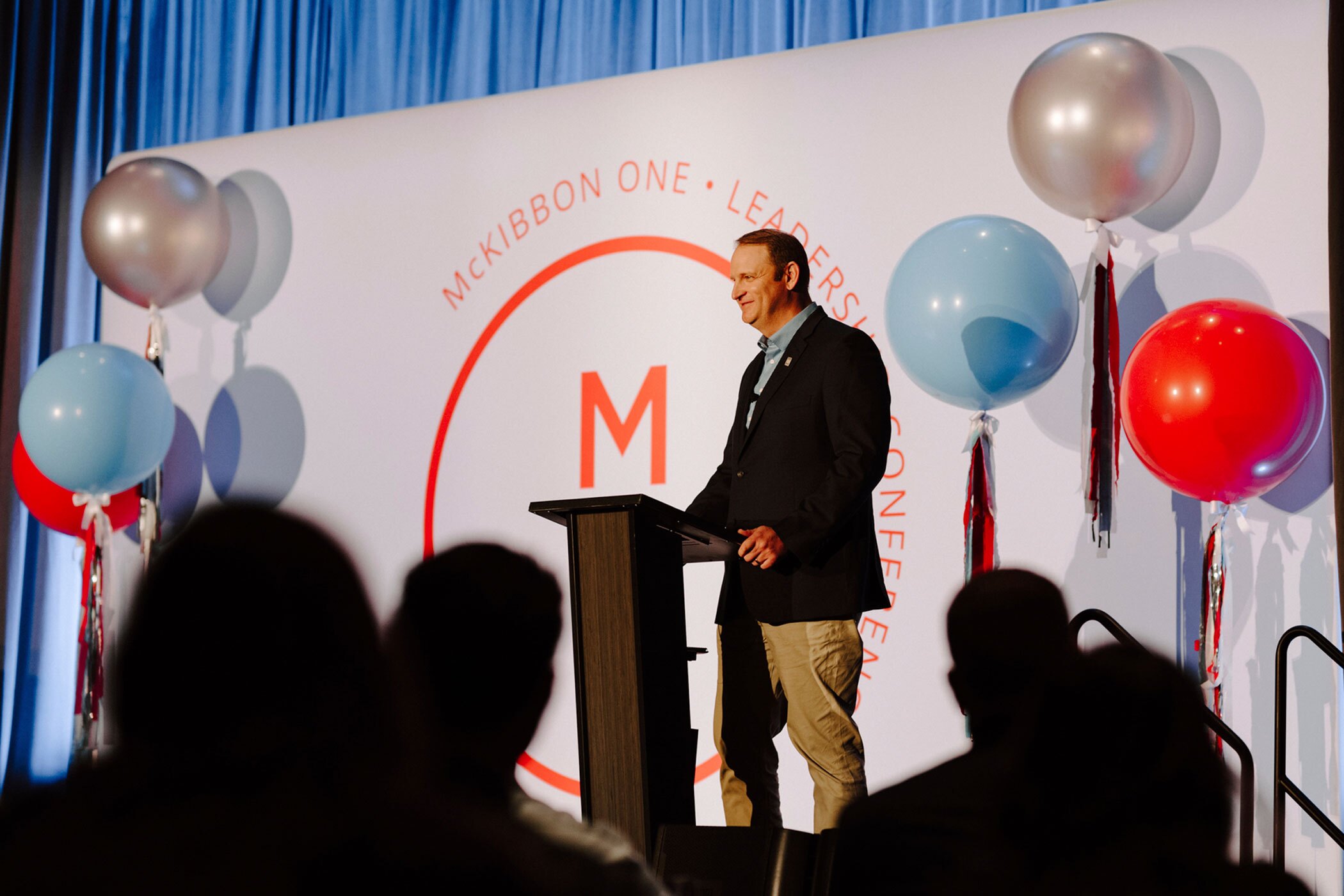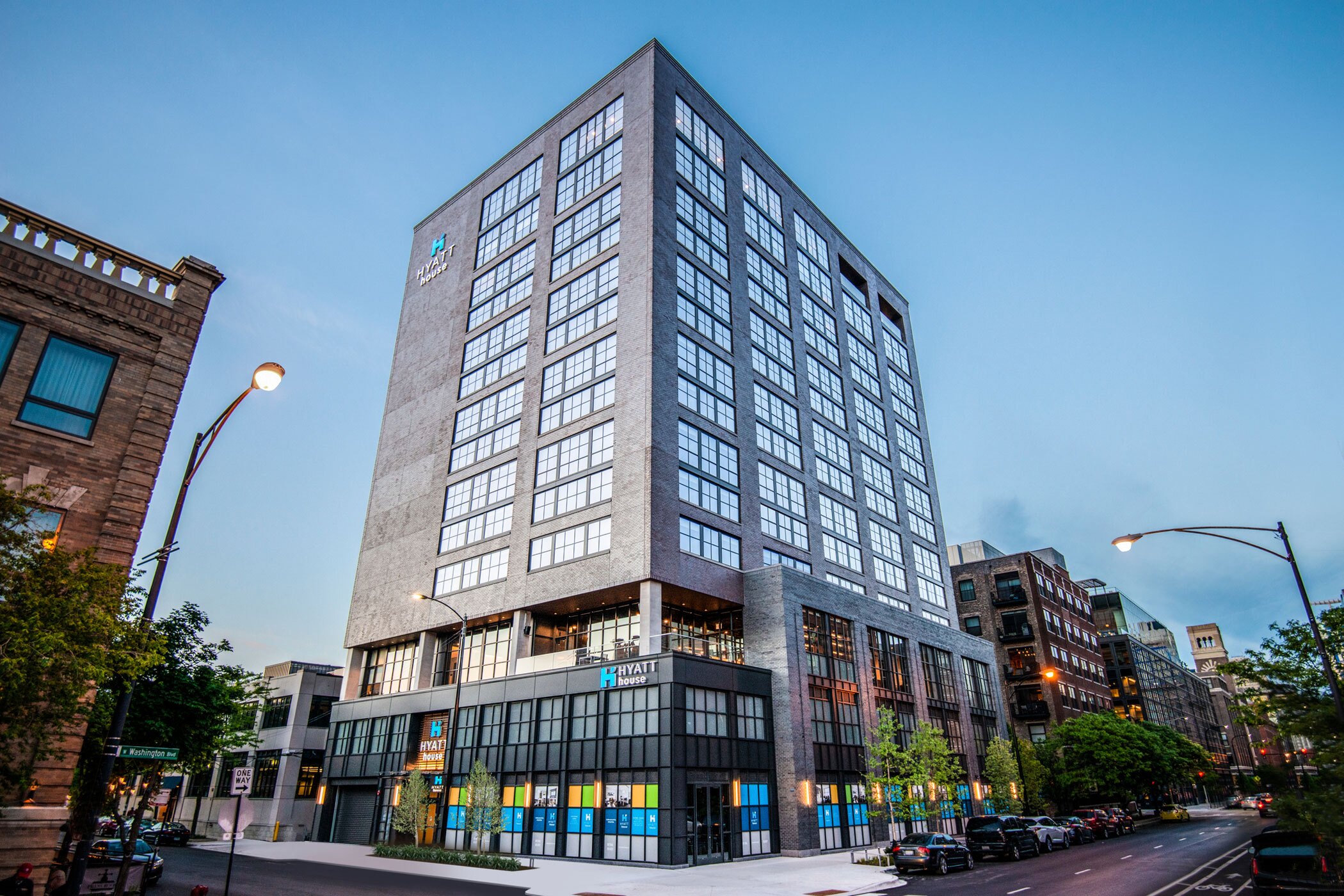Randy Hassen is nearing his one-year mark as CEO of third-party management company McKibbon Hospitality, and while he said he has big shoes to fill, he's also no stranger to being an inspiration to others.
Hassen, who is in his 32nd year with McKibbon, is proof that when a company invests in its people, they can reach the top of their careers.
Hassen started with McKibbon in 1991 as a part-time housekeeper at the Days Inn in Athens, Georgia. From there, he worked his way up as he immersed himself in the McKibbon culture. In his career, he's held positions including general manager, director of operations, vice president of operations, senior vice president of operations and president.
In October 2022, Hassen succeeded Vann Herring as CEO of the company. Executive leadership at the time felt it was the right moment for a CEO transition at the Tampa, Florida-based company, Hassen said.

"There's really some passing of the torch [and] handing over the reins so to speak," he said. "It was good timing for our predecessors to step back and enjoy the fruits of their labor the last 30-plus years. We've all been with the company for quite some time and have a good feel of where the company's going, the foundation that we've built, and [we're] excited about where we're going from here."
McKibbon is a family-owned and -operated company that represents brands including Marriott International, Hilton, Hyatt Hotels Corp., IHG Hotels & Resorts and Kimpton. It focuses on select-service, extended-stay, lifestyle and soft-brand hotels.
Rebounding from the Unthinkable
Getting to a place of optimism about where the company is headed, however, hasn't always been smooth sailing.
At the onset of the COVID-19 pandemic, McKibbon went from 2,500 associates to 500. Nothing was as devastating as that, Hassen said.
The company, which has 100 hotels in its portfolio, shut down nearly a dozen hotels during that time. Coming out of the depths of the crisis, his team focused on how and when it could hire staff again.
"It was a beautiful day when we got back to 2,500 associates. Now, I'm pleased to say we're over 3,000 associates and the company is as strong as it has been. We've got more corporate support staff than we've ever had," he said. "It is a different operating model out there. There are new challenges post-COVID."
Those challenges include finding talent.
McKibbon's partnership with the University of South Florida's School of Hospitality and Tourism Management in Tampa has aided in hiring a whole new workforce after many retired or left the industry for other opportunities during the pandemic.
Hassen said students from all over the world take part in the school's "teaching lab" program.
"It's really given us great access to this next generation of hospitality leaders, the needs of the new workforce, what they're looking for and how we can work on attracting them," he added. "It's pretty remarkable that the program is recruiting globally, and we're giving those students hands-on, real-world experience in our properties."
McKibbon's goal was to help USF establish and expand its hospitality and tourism management school.
"We really didn't look beyond giving the students hands-on experience and helping them grow their careers. But what we got out of it was way more than we could have ever imagined," Hassen said.
The program, which includes a J-1, H-2B visa program, has helped McKibbon to make permanent hires at its hotels and in its corporate office.
Most of all, students get exposure to a depth of knowledge within the industry, including select-service hotels, food and beverage, accounting and various departments within corporate, he said.
The biggest thing students want from an employer today is feeling like the company has a desire to invest in their career development, Hassen said. He added McKibbon has been that type of company for a long time, as he is a product of that.
"That's the primary reason I share my story. I was with the right company that was growing. I've certainly worked hard and looked for opportunities to grow," he said. "Since I was with a growing company that promoted from within ... it really does resonate with them that they [shouldn't] be discouraged by entry-level positions, because they know it's a stepping stone for the next opportunity to grow."
Company Growth Strategy
Hassen said McKibbon is focused on revenue-per-available-room growth, performance growth, market-share growth, development and expanding with its third-party ownership groups as well as finding new partners.

McKibbon currently partners with 18 ownership groups and manages 25 brands across 50 markets. It also manages eight independent restaurant concepts.
"A lot of our ownership groups are active in acquisitions. They really look at repositioning existing hotels, if there's opportunities to upbrand the hotels if they're in great markets," he said.
From a development perspective, his team likes Marriott's Moxy and AC brands. McKibbon has a project in downtown Asheville, North Carolina, in the works that is a Moxy and Aloft dual-brand hotel.
McKibbon also has a Moxy project in the works in Sandestin, Florida, as well as a dual-branded Hilton Tapestry and Tru by Hilton in Wilmington, North Carolina, that will open later this year.
Acquisition Fund
In addition to partnering with its ownership groups, McKibbon is working to purchase existing hotels through an internal investment fund.
"It's the first time really in our modern-day history that we've gone out and purchased hotels. The opportunities, we feel, are going to be coming up. They really didn't present themselves post-COVID," he said. "We're excited about launching our first investment fund."
The ideation of this investment fund began pre-pandemic, then was shelved at the onset of it, Hassen said.
"There was plenty of interest in purchasing hotels, but there just wasn't much opportunity to. Instead of hotels being positioned at a discount, they were priced at a premium," he added. "Now, it seems like the opportunity to purchase hotels is a good time."
A hotel that his team would ideally go for is one in the Florida market and in the select-service, extended-stay segment.
"The fund is more looking to buy cash-producing assets and opportunities to put the money to work right away," he said. "It's nice, because when we develop hotels, sometimes it takes two to three years to get a hotel up and running and your money is sitting on the sidelines while that's happening. This gives our investors an opportunity to invest [and put their money] to work right away."
